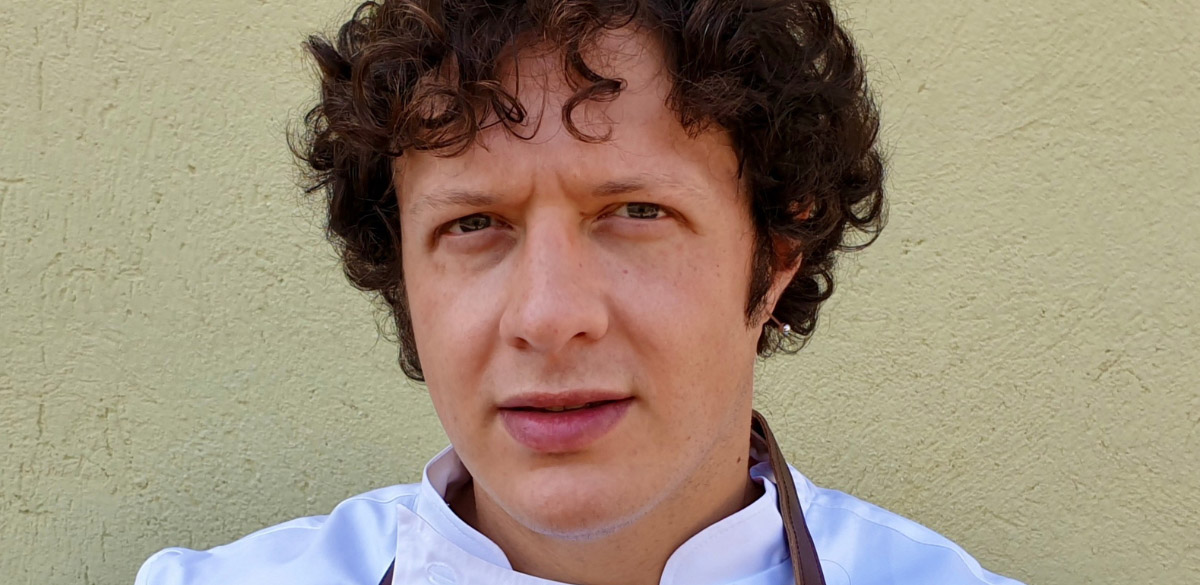Chef Angelo Rosso paradoxically comes from a small town in the region of Abruzzo, Italy. Still, he has an international working history in the UK, Singapore, Taiwan, South Korea, Australia, West Africa, and Copenhagen that many would envy. His list of places he has worked is equally impressive, including The Fat Duck by Heston Blumenthal, Alain Ducasse at The Dorchester, and L’Escargot by Marco Pierre White, to name a few, before joining yachting in 2020 as a head chef on a superyacht.
What made you want to become a chef?
I have had a passion for food ever since I was a kid. From an early age, I was always cooking at home with my mother and grandmother.
Where did you train to become a chef?
I trained in London, mainly working in Michelin starred restaurants, but my best experience was at The Fat Duck. It was a mind opening place. Everything in the kitchen was different, from the way of cooking to the way of thinking and approach to daily challenges.
Why do you like working in different countries?
I liked the fact that I could learn and experiment with new ingredients and learn new cooking techniques.
What do you like to cook?
Cooking meat and preparing raw dishes are two completely different things. Cooking large pieces of meat requires a lot of skill and patience and can sometimes take up to 8 hours on an open fire. Preparing raw dishes is quick. You can mix fresh fruit with raw fish, and in 10 minutes, the dish is ready. All you need to do is balance the sweetness and acidity of the type of fish. The same goes for raw vegetables.
How would you describe your style of cooking?
It’s Zen-based with a focus on local and seasonal ingredients, respecting them and highlighting the best characteristics of every single ingredient.
What are your favourite places for food?
I would say Southeast Asia and West Africa (Sao Tomé and Principe). The amazing variety of fresh fruits and vegetables available in those parts of the world and the ability to choose from such a vast selection and sometimes collect them straight from the tree are priceless and achievable in those places, especially in São Tomé and Príncipe.
What is the most challenging place you have ever worked?
Every place has its challenges, so I like to achieve the best goals. I would say the yachting industry has definitely been the most challenging.
Why has yachting been so challenging for you?
Yachting has a variety of challenges, starting with spending lots of time away from the people you love the most and living in enclosed spaces, sometimes without the chance of leaving the boat for up to two months at a time. The long hours in the galley require you to be organised, clean and able to provide the top quality experience for the guests. All of those factors placed together can create a very challenging work and living environment. I believe what gives the chef the strength to carry on is the passion and love we have for our job.
What are your ‘best and worst moments’ as a yacht chef?
The best moment is when the dessert is served, and the worst is when the provisions arrive.
What is the best thing about being a yacht chef?
That I have access to all the top ingredients in the world so I can experiment and create new dishes.
What keeps you going on the long days in the galley?
The passion to surprise our guests with the best culinary experience they can possibly have.
Which chefs inspire you?
I like the philosophy of the restaurant Geranium in Copenhagen, where I once did a stage in 2022. Thoughtfulness can be tasted and involves all senses; it restores, challenges, and enriches. Most of the time, I get my inspiration directly from nature and the seasonal ingredients that Mother Earth has provided.
What advice do you have for chefs new to the yachting industry?
The best mindset is always calm, positive, and fit. It will help you get through long periods and maintain your focus to achieve the best standards for yourself and the guests.
How do you spend your time away from the galley?
I love hiking and free diving, and I like to stay updated with the best food trends and ingredient research.





























0 Comments